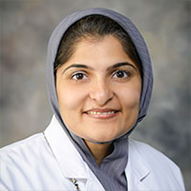Dallas
214-456-5959
Fax: 214-456-5963
Plano
469-303-2400
Fax: 469-303-2407
Park Cities
469-488-7000
Fax: 469-488-7001
Multiple endocrine neoplasia (MEN) is a group of disorders that adversely affects your child’s endocrine system (the system that produces hormones).
214-456-5959
Fax: 214-456-5963
469-303-2400
Fax: 469-303-2407
469-488-7000
Fax: 469-488-7001
Children with MEN typically have tumors in at least two endocrine glands. Tumors can also develop in other organs and tissues. The tumors can either be cancerous (malignant) or noncancerous (benign).
As MEN is a genetic disorder, the main risk factor is family history. The disease may occur at any age, and it affects males and females equally. Early detection is critical. It can prevent your child from developing thyroid cancer and, ultimately, save his life.
If your child is affected by MEN, it could be one of two types (Type 1 and Type 2). Both are genetic.
One or more of your child’s endocrine glands may be affected. The glands most commonly involved include the:
One or more of the endocrine glands may also be affected, but those most commonly involved including:
Type 2 MEN is rare, affecting about 1 in 35,000 individuals. With either type, early diagnosis is critical to your child’s health. This hereditary cancer syndrome comes with a high risk of tumors and it may occur at ages younger than expected.
Two subtypes of Type 2
MEN2A is associated with increased risk for medullary cancer of the thyroid (MTC), pheochromocytoma and primary hyperparathyroidism (PHPT).
MEN2B is associated with increased risk for MTC, pheochromocytoma, mucosal neuromas (benign growths) of the lips and tongue, and distinctive physical characteristics, such as enlarged lips and tall and slender body type. Disease onset generally occurs during infancy or early childhood.
Familial medullary thyroid cancer (FMTC) is associated with an increased risk of developing MTC in early or middle adulthood, but it is not associated with the development of pheochromocytoma or parathyroid disease.
Genetic testing has proved to be a highly effective tool. For instance, testing of the RET genes can detect alterations in approximately 98% of individuals with MEN2A and MEN2B, and approximately 95% of families with familial medullary thyroid cancer.
Physicians can employ several methods for diagnosing MEN. Your child’s doctor may use a combination of these methods:
To determine, on a molecular level, if someone has Type 2 MEN2, a genetic test must be completed. This can be accomplished with a blood or saliva sample. DNA isolated from the sample enables RET gene evaluation. Alterations are identified and subjected to further examination.
Test results provide important genetic information for your family. As MEN is hereditary, results will indicate if other family members need to be tested to determine if they also carry the genetic mutation.
MEN is caused by mutations at specific areas of your child’s genetic information. Every individual has a large amount of genetic information that is organized into the genes that instruct body cells to perform different functions.
Once a patient is diagnosed with MEN, they will need close follow up with a team of specialist. The treatment depends on the type of mutation and the age of the child at presentation.
For those children with MEN2 specifically, they are at risk for developing thyroid cancer at a very early age so prophylactic thyroidectomy is recommended. Early detection and intervention to prevent and treat medullary thyroid cancer significantly improves disease-related mortality and morbidity.
Depending on the type of mutation (determined by genetic testing), surgery may be recommended in infancy.
Continued surveillance of these patients is critical due to their risk of recurrence and the risk of developing other tumors.









